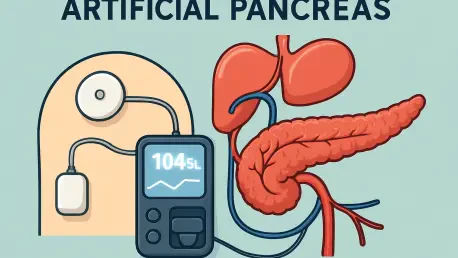In the realm of bioengineering, certain individuals make contributions so significant that they shift the direction of entire fields. David Gough, a pioneering figure in this domain, particularly in glucose sensing and biosensors, stands as an exemplar of such enduring impact. His work has fundamentally transformed diabetes management, introducing innovations that have provided patients with better tools for monitoring and managing their conditions. Through his research at the University of California, San Diego (UC San Diego), Gough bridged the gap between academic exploration and practical application, leading to advancements that reshaped diabetes care for countless individuals globally.
Groundbreaking Research on Glucose Monitoring
At the core of Gough’s revolutionary impact was his groundbreaking research in continuous glucose monitoring. Over several decades, his work laid the foundational groundwork for the development of implantable continuous glucose sensors. These sensors advanced the approach to diabetes management by allowing real-time monitoring of blood glucose levels over extended periods, thus significantly improving patient care. A testament to his influence, UC San Diego bioengineering professor Geert Schmid-Schoenbein highlighted the feasibility and immense value of continuous blood glucose monitoring, demonstrating its essential role in both current and future diabetes management.
Gough’s research did not remain isolated to academic theory; he was the driving force behind the application of his findings in tangible technologies. He co-founded GlySens Incorporated with Joseph Lucisano, a former Ph.D. student, to focus on the practical realization of long-term, fully implantable biosensors. These miniaturized devices, capable of persistent glucose measurement, represented a technological breakthrough documented in a significant paper published in Science Translational Medicine in 2010. Under Gough and Lucisano’s leadership, GlySens navigated numerous technological challenges, successfully transitioning their sensor technology into human clinical trials, achieving a remarkable implant duration of up to two years in later trials.
Advancements Toward the Artificial Pancreas
Gough’s contributions extended beyond glucose sensors; his work was critical in pioneering the path toward an artificial pancreas. By laying the groundwork for integrating continuous glucose monitoring systems with insulin pumps, he veered closer to realizing an intelligent, fully automated diabetes management system. This advancement marked a revolutionary leap forward in diabetes care, promising a future where the physiological balance of glucose and insulin could be closely regulated, substantially reducing the burden on patients. The complexity and precision required for such a development underscore Gough’s commitment to transforming diabetes management into a streamlined and automated process.
His expertise in biochemical sensing technologies reverberated across broader applications, even though Gough often shunned accolades for work outside glucose monitoring. Colleagues and students at UC San Diego explored further avenues in biosensor technologies by solving challenges posed by consistently measuring biochemical signals in living tissues. His influence is underscored by an impressive record of over 100 publications and more than 18 patents related to implantable sensors, emphasizing his significant contributions to the field of bioengineering and biomedical innovation. These achievements reflect Gough’s persistent dedication to technological advancement and patient care.
Educational Impact and Mentorship
David Gough’s influence transcended research and development, touching the educational sphere with equal vigor. His tenure at UC San Diego was marked by a dedication to teaching and mentorship, where he played a pivotal role in establishing and elevating the bioengineering program. He focused on translating cutting-edge research into real-world applications, bridging the quintessential gap between laboratory findings and industry solutions. A staunch advocate for the Small Business Innovation Research (SBIR) Program, Gough facilitated the seamless transition of academic research to clinical applications, demonstrating his commitment to improving lives through practical engineering innovations.
In his academic endeavors, Gough co-created the Master of Advanced Studies (MAS) program in Medical Device Engineering at UC San Diego, a forward-thinking initiative aimed at fostering professional development within the industry. This program allowed working engineers to enhance their expertise while maintaining their professional duties, ultimately aiming to improve patient outcomes through enhanced medical device engineering skills. His influence extended beyond traditional university settings, reaching into high schools, where he inspired students from under-resourced backgrounds in San Diego to consider STEM careers, opening doors to newfound opportunities through education and industry engagement.
Legacy and Recognition
In the field of bioengineering, a few individuals contribute so profoundly that they redefine entire areas of study. Among these influential figures is David Gough, a trailblazer in the areas of glucose sensing and biosensors. His groundbreaking work has fundamentally altered how diabetes is managed, introducing innovative solutions that offer patients improved methods for monitoring and managing their conditions. At the University of California, San Diego (UC San Diego), Gough’s research connected the world of academic exploration with real-world applications, ushering in developments that have transformed diabetes care for countless people worldwide. Through his pioneering work, Gough facilitated advances that elevated the standard of care and improved the quality of life for those living with diabetes. His contributions helped to develop more accurate and user-friendly glucose-monitoring tools, allowing patients to gain better control over their health. This integration of research and practical solutions has made a lasting impact on diabetes care globally.









